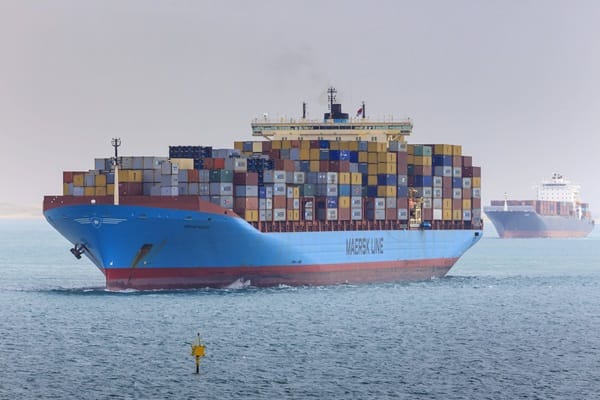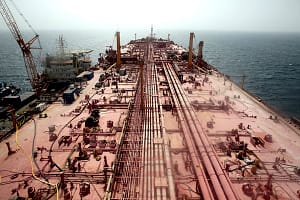There have recently been many stories in the media about shipping firms pausing Red Sea journeys over attacks.
For example, the Danish shipping company Maersk has said it is pausing all journeys through the Red Sea.
The decision comes after a spate of attacks on vessels launched from a part of Yemen controlled by the Houthis – and Iran-backed rebel movement.
Additionally, BP has paused all Red Sea shipments after rebel attacks, and there are fears of higher oil prices after Red Sea attacks are predicted and the effect on global trade.
Houthis rebels based in Yemen continue to target commercial cargo vessels in the Red Sea forcing ships to take an alternative route which will cost shipping companies more money.
Multiple companies are being forced to re-route or even cancel their movements in the Middle East and north African region.
Economist have warned that this will create disruption to global trade which will have an increased cost on the world economy.
Four of the world’s five largest container shipping companies, Maersk, CMA CGM Group, and Hapag-Lloyd and now BP have all temporarily suspended shipments across the region.
Captain Steve Bomgardner, VP Commercial Markets, Pole Star Global said, “The cost of shipping raw materials or finished products via maritime routes might be affected by decisions made months or years earlier, such as long-term contracts, fuel pricing agreements, or investments in shipping infrastructure.
“The maritime industry often operates on extended timelines due to the nature of shipping contracts and the time it takes for vessels to move across oceans.
“Therefore, pricing dynamics in the maritime sector may not always align with immediate events but could be linked to earlier decisions and circumstances.”
Chief infrastructure officer Rabab Raafat Boulos said, “With the line of impacted vessels building fast in the area, progressing with speed will be key for the coalition in order to minimise direct negative impact on global trade.”
Torsten Slok, the chief economist of Apollo Global Management, said, according to Bloomberg, “Rising uncertainty in the Suez channel combined with the global economy rebounding because of easier financial conditions could put upward pressure on goods inflation over the coming months.”
Henning Gloystein, a director at researcher Eurasia Group, told Bloomberg, “The situation does mean an increase to shipping costs and some short-term delivery delays.
“All these costs will be directly passed on to consumers.”






Leave a Comment